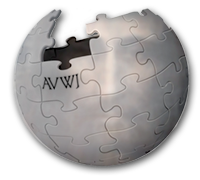
The Dead Sea Scrolls, (a.k.a. Qumran Caves Scrolls), are ancient Jewish manuscripts from the Second Temple period. They were discovered between 1946 and 1956, at the Qumran Caves on the north-western shore of the Dead Sea. Dating from the 3rd century BC to the 1st century AD, they include the oldest surviving manuscripts of entire books later included in the biblical canons. They also cast light on the emergence of Christianity and of Rabbinic Judaism. Almost all of the scrolls and scroll fragments are housed in the Shrine of the Book at the Israel Museum in Jerusalem.
This table provides informational links on the documents found in Cave 11.
| Fragment or scroll identifier | Fragment or scroll name | Alternative identifier | English Bible Association | Language | Date/script | Description | Reference |
|---|---|---|---|---|---|---|---|
| 11QpaleoLeva | Paleo-Leviticusa | 11Q1 | Leviticus 4:24–26; 10:4–7; 11:27–32; 13:3–9; 13:39–43; 14:16–21; 14:52–15:5; 16:2–4; 16:34–17:5; 18:27–19:4; 20:1–6; 21:6–11; 22:21–27; 23:22–29; 24:9–14; 25:28–36; 26:17–26; 27:11–19 | Hebrew | Herodian/palaeo-Hebrew script | [89] | |
| 11QLevb | Leviticusb | 11Q2 | Leviticus | Hebrew | Herodian/palaeo-Hebrew script | [89] | |
| 11QDeut | Deuteronomy | 11Q3 | Deuteronomy 1:4–5; 2:28–30 | Hebrew | 50 CE
Late Herodian |
[46] | |
| 11QEzek | Ezekiel | 11Q4 | Ezekiel | Hebrew | Herodian | [419][420] | |
| 11QPs | The Great Psalms Scroll | 11Q5 | Psalms | Hebrew | Herodian | A unique Psalms scroll with only about a quarter of the Masoretic psalms (in atypical order), three Syriac psalms, one from Ben Sira, and the only known copies of three more unique psalms—Plea for Deliverance, Apostrophe to Zion, and Hymn to the Creator—all of which are unattested by other sources, as well as the short text of David's Compositions. | [89] |
| 11QPsa | Psalms | 11Q5 | Hebrew | Herodian | [89] | ||
| 11QPsb | 11Q6 | Psalm 77:18–21; 78:1; 109:3–4; 118:1; 118:15–16; 119:163–165; 133:1–3; 141:10; 144:1–2 | Hebrew | Herodian | [89] | ||
| 11QPsc | 11Q7 | Psalm 2:1–8; 9:3–7; 12:5–9; 13:1–6; 14:1–6; 17:9–15; 18:1–12; 19:4–8; 25:2–7 | Hebrew | Herodian | [89] | ||
| 11QPsd | 11Q8 | Psalm 6:2–4; 9:3–6; 18:26–29; 18:39–42; 36:13; 37:1–4; 39:13–14; 40:1; 43:1–3; 45:6–8; 59:5–8; 68:1–5; 68:14–18; 78:5–12; 81:4–9; 86:11–14; 115:16–18; 116:1 | Hebrew | Herodian | [89] | ||
| 11QPse | 11Q9 | Psalm 50:3–7 | Hebrew | Herodian | [89] | ||
| 11QtgJob | Targum Job | 11Q10 | Job | Aramaic | Herodian | A unique Aramaic translation of the Book of Job; presents Job somewhat more favourably. | [89] |
| 11QapocrPs | Apocryphal Psalms | 11Q11 | Psalm 91 | Hebrew | Herodian | Apocryphal paraphrase of Psalms 91 | [89] |
| 11QJub | Jubilees | 11Q12 | Hebrew | Herodian | Ethiopic text of Jubilees 4:6–11; 4:13–14; 4:16–17; 4:29–31; 5:1–2; 12:15–17; 12:28–29 | [89] | |
| 11QMelch | Melchizedek | 11Q13 | Contains Pesher/commentary on Leviticus 25:13; Deuteronomy 15:2; Psalm 7:8–9; 82:2; Isaiah 52:7; Daniel 9:25; Leviticus 25:9 | Hebrew | 50–25 BCE or 75–50 BCE
Late Hasmonean or Early Herodian |
Describes a tenth jubilee and portrays Melchizedek as a messianic agent of salvation, using similar language to that used for Jesus in Hebrews, such as "Heavenly Prince Melchizedek" | [89][46] |
| 11Q Sefer ha-Milhamah | Sefer ha-Milhamah ("The Book of War") | 11Q14 | Hebrew | Herodian | An account of the final eschatological battle of the Israelites and the Kittim (Romans), including a messianic figure named the "Prince of the Congregation." | [89] | |
| 11QHymnsa | Hymns | 11Q15 | Hebrew | Herodian | [89] | ||
| 11QHymnsb | 11Q16 | Hebrew | Herodian | [89] | |||
| 11QShirShabb | Songs of the Sabbath Sacrifice | 11Q17 | Hebrew | Herodian | Collection of 13 hymns describing a heavenly temple service. | [89] | |
| 11QNJ | New Jerusalem | 11Q18 | Aramaic | Herodian | Appears to be an apocalyptic vision, including some architectural details of a very large city (cf. Ezekiel and Revelation) | [89] | |
| 11QTa | Temple Scroll | 11Q19 | Hebrew | Herodian | Rephrases the Pentateuch laws in the spirit of Deuteronomy, seeks to resolve biblical legal conflicts and expand ritual laws. | [89] | |
| 11QTb | Temple Scroll | 11Q20 | Hebrew | Herodian | [89] | ||
| 11QTc | 11Q21 | Hebrew | Herodian | [89] | |||
| 11Q Unidentified | Unidentified | 11Q22 | Hebrew | Hasmonean | Unidentified fragments. | [89] | |
| 11Q23 | Hebrew | Hellenistic-Roman | [89] | ||||
| 11Q24 | Aramaic | Hasmonean | [89] | ||||
| 11Q25 | Hebrew | Herodian | [89] | ||||
| 11Q26 | Hebrew | Herodian | [89] | ||||
| 11Q27 | Hebrew | Hellenistic-Roman | [89] | ||||
| 11Q28 | Hebrew | Hellenistic-Roman | [89] | ||||
| 11Q29 | Serekh ha-Yahad related | ||||||
| 11Q Unidentified | Unidentified | 11Q30 | Hebrew | Herodian | Unidentified fragments. | [89] | |
| 11Q Unidentified | Unidentified | 11Q31 | Unidentified fragment | [421] | |||
| 11Q9999 | Unidentified | Hellenistic-Roman | [89] | ||||